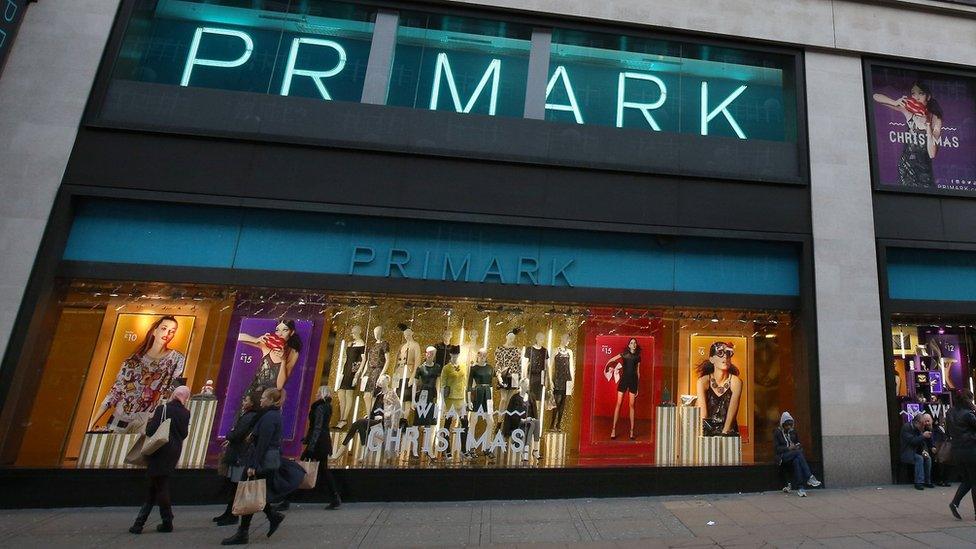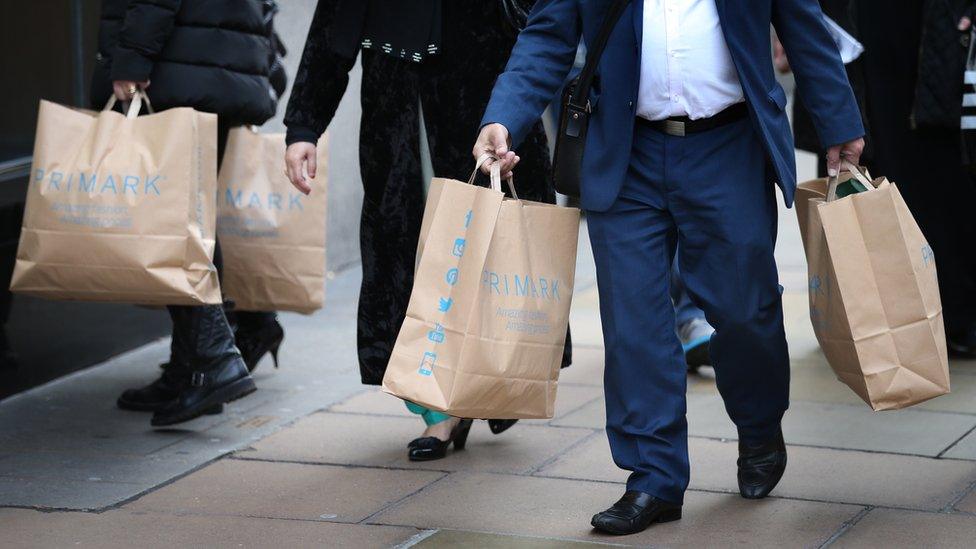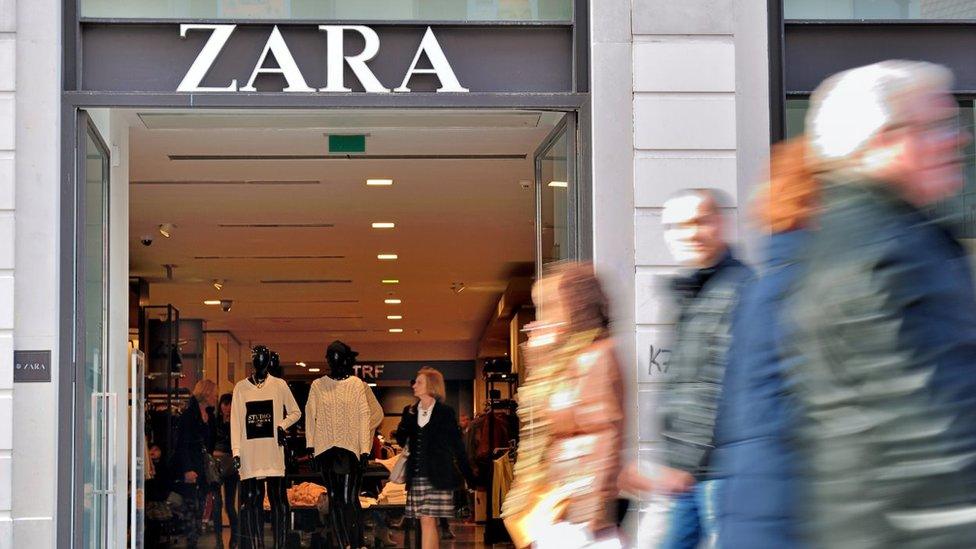Primark blames the weather for falling sales
- Published

A warm winter and a cold spring has been blamed for a fall in sales at low-cost fashion retailer Primark.
Shoppers left winter clothes on the rails in the run up to Christmas due to unusually warm weather, and a cold March and April depressed sales of summer clothes.
As a result Primark, like other stores, had to cut the price tag to sell them.
The retailer expects like-for-like sales, which ignore new-store sales, to fall 2% for the year to 17 September.
"If the weather's warm consumers make do with clothes from the previous year," said Maria Malone, principal lecturer for fashion business at Manchester Metropolitan University.
For retailers like Primark that causes a problem as they source their clothes from the Far East and South Asia and cannot adjust their stock to reflect the weather conditions.
"Once stock is on its way you can't turn the ships around," points out Ms Malone. Big retailers need to clear their warehouses for the next season's clothes, so are forced to discount clothes.
Primark said its current financial year had also appeared weak, because the previous year had been very strong and it had been hard to improve on that performance.
Nevertheless, shares in Associated British Foods (ABF), which owns Primark, tumbled almost 9% following the market update.

Pound impact
Primark has opened 315 stores during the current financial year, including its first store in Italy and a flagship store in Spain, on Gran Via in Madrid.
Four stores were opened in the north east of the US, where the company said its brand had been "well received".
Including the effect of those new store openings, Primark expects sales to be 9% ahead of the previous year.
The weakening of the pound has not so far affected Primark's results, but it warned that profit margins are likely to be hit next year.
However, it appears that Primark intends to shelter shoppers from the effect of the weakened pound - it said that it was "committed" to keeping prices low.
Pension deficit
Parent company ABF said its underlying profit, external was ahead of expectations and "marginally" better than last year.
But adverse conditions in the financial markets hit the company's UK pension scheme. ABF expects it to swing into a £200m deficit, compared with a small surplus in the previous year.
As a result the company expects to pay more to service the scheme next year. The fund will have an official re-evaluation in 2017.
ABF also owns British Sugar and a range of grocery brands, including Twinings, Ovaltine, Kingsmill bread and Dorset Cereals.
- Published10 September 2016

- Published8 September 2016
